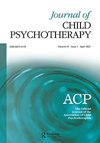反思性小组监督:心理治疗师和儿童健康中心护士合作
IF 0.8
Q4 PSYCHOLOGY, CLINICAL
引用次数: 0
摘要
产后抑郁症影响着每六个母亲,婴儿的情绪困扰也很常见。对母婴咨询和心理治疗的需求可能大大超过了事实上获得合格帮助的家庭数量。儿童保健中心的护士是第一批与陷入困境的家庭见面的专业人员。他们帮助他们的意愿受到相互冲突的专业态度、患者的期望以及如何处理患者与护士互动的不确定性的影响。护士可能会遇到需要注意的临床障碍。反思性小组监督是一种有价值的补救措施,也是在日常实践中教育护士的一种方法。该方法通过一个小插曲,以及对护理和精神分析文献的回顾来说明。护士经常处理愤怒、内疚和不确定焦虑的问题,这可能会阻碍他们理解家人的情感纠葛。督导将督导的心理动力能力与护士的经验相结合,激发对疑难病例的自我反思。应定期为其提供管理支持,主管最好是一名在儿童和成人工作方面经验丰富的心理治疗师。治疗师可以同时在该中心担任临床医生顾问,从而增加家庭获得充分帮助的机会。本文章由计算机程序翻译,如有差异,请以英文原文为准。
Reflective group supervision: psychotherapists and child health centre nurses in collaboration
ABSTRACT Postpartum depression affects every sixth mother, and emotional distress in infants is also common. The need for parent-infant consultations and psychotherapies probably greatly exceeds the number of families who in fact receive qualified help. Nurses at child health centres are the first professionals to meet distressed families. Their readiness to help them is clouded by conflicting professional attitudes, patients’ expectations, and uncertainties of how to handle patient-nurse interactions. Nurses may experience clinical impasses that need attention. Reflective group supervision can be a valuable remedy, and a method for educating nurses in daily practice. The method is illustrated by a vignette, and a review of the nursing and psychoanalytic literature. Nurses often address problems with anger, guilt, and anxiety of uncertainty, which may block their understanding of the families’ emotional entanglements. Supervision combines the supervisor’s psychodynamic competence and the nurses’ experiences, to inspire self-reflection on difficult cases. It should be provided regularly with management support, and the supervisor should preferably be a psychotherapist experienced in child and adult work. The therapist can work simultaneously as a consultant clinician at the centre, thus increasing the opportunities for families to receive adequate help.
求助全文
通过发布文献求助,成功后即可免费获取论文全文。
去求助
来源期刊

JOURNAL OF CHILD PSYCHOTHERAPY
PSYCHOLOGY, CLINICAL-
CiteScore
0.70
自引率
50.00%
发文量
46
期刊介绍:
The Journal of Child Psychotherapy is the official journal of the Association of Child Psychotherapists, first published in 1963. It is an essential publication for all those with an interest in the theory and practice of psychoanalytic psychotherapy and work with infants, children, adolescents and their parents where there are emotional and psychological problems. The journal also deals with the applications of such theory and practice in other settings or fields The Journal is concerned with a wide spectrum of emotional and behavioural disorders. These range from the more severe conditions of autism, anorexia, depression and the traumas of emotional, physical and sexual abuse to problems such as bed wetting and soiling, eating difficulties and sleep disturbance.
 求助内容:
求助内容: 应助结果提醒方式:
应助结果提醒方式:


